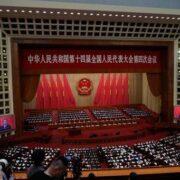The effects of an absolutely simulated contract
(Conclusion)
In Candelario S. Dela Cruz, et al. v. Alejandro Dumasig and Rosalinda Epe, Eniego and Silvestra Dela Cruz (“Spouses Dela Cruz”) sought the help of their daughter, respondent Rosalinda Epe, to pay their loan and redeem their properties, including the disputed land, which had secured it. In exchange, they offered Rosalinda these properties as her share in the inheritance.
Despite giving the titles to, and executing a deed of sale with assumption of mortgage in favor of, Rosalinda, Spouses Dela Cruz remortgaged the disputed land to a certain Erlito Llanes. Rosalinda possessed it for one cropping season and subsequently returned it to Spouses Dela Cruz, who resumed their possession thereof until their respective deaths.
Thereafter, she used it to secure as mortgage her loan agreement with co-respondent Alejandro Dumasig. Proceeds of this loan were used to pay off, among others, the loan obtained from Erlito.
Meanwhile, petitioners Candelario Dela Cruz, Lubita Lantapon, Diego Dela Cruz, Mauricia Epe, Rodrigo Dela Cruz, and Ariston Dela Cruz (collectively, “Dela Cruz siblings”), who were Spouses Dela Cruz’s other children, claimed that after Eniego’s death, the Dela Cruz siblings entrusted to Rosalinda the management and cultivation of the land.
Nevertheless, they were surprised to discover that the land had been occupied by Alejandro, who claimed that Rosalinda had mortgaged it to him.
The Dela Cruz siblings demanded that Alejandro return the physical possession and ownership of the disputed land, which the latter refused. This constrained the Dela Cruz siblings to file a complaint for accion reivindicatoria before the Regional Trial Court (RTC).
As earlier discussed, the RTC granted the complaint, but the finding was reversed and set aside by the Court of Appeals since, among others, the fact of Spouses Dela Cruz’s continued tilling of the land did not negate the fact of sale between them and Rosalinda. This was merely in keeping with traditional Filipino family values for a daughter to help her parents retain their source of livelihood.
Moreover, the deed of sale they had executed was notarized, and thus enjoyed the presumption of regularity.
In their petition before the Supreme Court, the Dela Cruz siblings argued that, among others, the sale between Spouses Dela Cruz and Rosalinda was void for lack of consideration since the supposed purchase price came from the loan proceeds, and not from Rosalinda.
Thus, the parties never intended to sell the disputed land since Spouses Dela Cruz had continued to cultivate and remortgage it after the sale.
The Dela Cruz siblings further argued that since the sale to Rosalinda was void, Alejandro’s possession and ownership of the disputed land was likewise void.
The Supreme Court granted the Dela Cruz siblings’ petition. In so doing, it first defined the concept of an absolutely simulated contract, which has no substance since the parties do not intend to be bound by it or produce any legal effect as to alter their juridical situation. Therefore, this contract is void, and the parties may recover from each other what they may have given under the contract.
The Supreme Court further held that in determining whether a contract is absolutely simulated, the totality of the prior, contemporaneous, and subsequent acts of the parties must be considered.
In this case, Spouses Dela Cruz and Rosalinda executed an absolutely simulated contract of sale and thus is void. To be sure, despite the sale, Spouses Dela Cruz continued to possess and exercise other acts of ownership over the disputed land, such as using it to secure their loan with Llanes and executing an Amended Waiver of Rights and Interest over the same in favor of petitioner Diego to form part of his share in the inheritance.
Meanwhile, as earlier established, Rosalinda immediately returned it to Spouses Dela Cruz after one cropping season. It was only upon the latter’s death that Rosalinda took over and applied as mortgage the land in favor of Alejandro.
With the foregoing, the loan agreement between Rosalinda and Alejandro is likewise void since Rosalinda is not the absolute owner of the disputed land, which she has used as security thereof. Instead, the Dela Cruz siblings and Rosalinda are its co-owners, being the heirs of Spouses Dela Cruz.



















